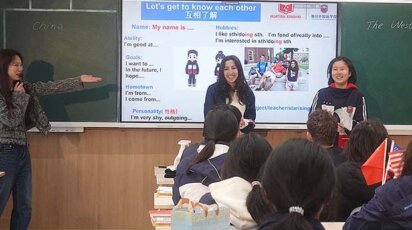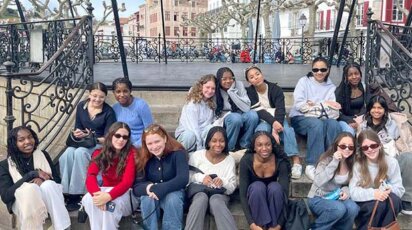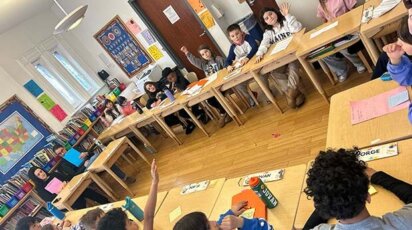News
Pre-K Reenacts Rosa Parks’ Bus Protest in Civil Rights Study

Head Teacher, Pre-K A
Every year, we teach our Pre-K A class about the civil rights era and the Africans who fought for justice during Jim Crow (apartheid) through the lens of Rosa Parks. After reading various books about the heroine, the class puts on a play about the fateful day on that bus in Montgomery, Alabama. Pre-K A’s Rosa Parks “reenactment” has many components. First, we learn about Dr. Martin Luther King Jr. and discuss the term, “fairness.” This fairness conversation leads to examining what people need to live well. This year, we created a fantastic list of needs that included teachers, parents, toys, and clean air.
To augment our study of fairness, we reenacted the Rosa Parks bus protest, but instead we chose that the “bad rule” was that girls were not allowed to sit in the front to give it a real-world context for the children. (Some years, boys are the ones not allowed in the front.) We lined up chairs to resemble a bus and the students played various roles like the bus driver, passenger, and police officer. Of course, we had a Rosa Parks, who sat in the front amid the boys and refused to give up her seat. After the reenactment we talked about how each group felt during the protest. We had some very interesting conversations to say the least.
“I’m going to grow up and change bad rules.”
This lesson allows the children to contextually experience standing up for what is right and give them a chance to talk about whether it is OK to follow a law or rule when it is unfair, and how do you protest unfair laws. One child remarked, after one such discussion, “I’m going to grow up and change bad rules.” During our study, we learned that people made speeches, marched together, sang protest songs, sat in at restaurants, or simply said ‘no’ on a bus, to change the “bad rules.”



